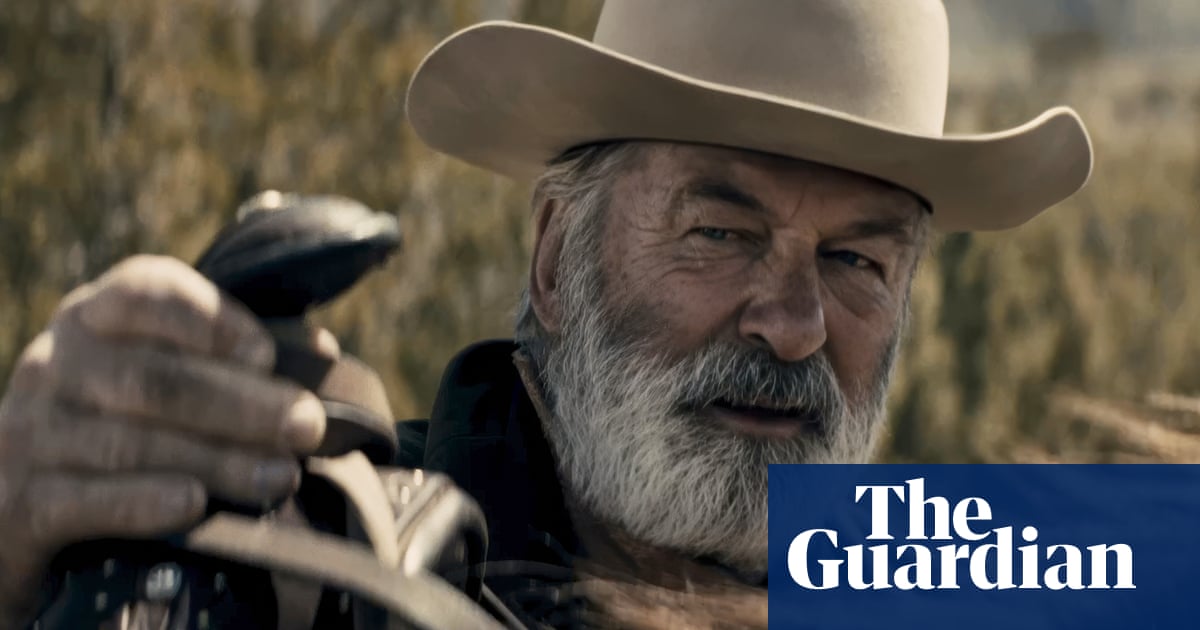Margot Robbie and Sydney Sweeney are two of the most in-demand actors in Hollywood. As such, they’ve both logged their time in superhero movies of recent vintage (though Robbie’s turn as Harley Quinn is probably better-known than whatever Sweeney found herself doing in Madame Web). It feels notable, then, that in recent weeks they’ve both been connected to multiple projects based on video games. Robbie’s Lucky Chap plans to produce a movie based on The Sims; Sweeney, meanwhile, will produce OutRun, based on a 30-year-old arcade game, and has also signed to star in a movie based on the more recent hit game Split Fiction. Score a bunch of points for the gamers. Is the dawn of gamer cinema finally here?
Regardless of this Hot Lady defection, superhero movies and other comics-based properties will likely stick around for years to come. Marvel still kicks off the summer movie season this week with Thunderbolts, and the MCU series in particular has probably reached (and touched) too many people to go the way of Transformers movies quite yet. Still: games are providing major competition as far as Hollywood’s favorite IP. While Marvel and DC movies have flopped left and right in the past two years, that same period has seen the release of the top three videogame-based movies of all time. That list includes A Minecraft Movie, which is still raking in money even after the Chicken Jockey riots have quieted.
As with superhero cinema before its 2000s-era boom, video games provided the source material for plenty of movies over the course of several hit-or-miss decades, with an emphasis on miss: The first try at adapting Super Mario Bros into film was crushed by the summer of Jurassic Park (and its own frenetic weirdness); an attempted Tomb Raider franchise only lasted two movies (one big hit and one expensive flop); and plenty of shoot-em-up games like Doom were shot down. Adding insult to injury, many of the most popular game-related or game-imitative movies, like Wreck-It Ralph or Free Guy, weren’t based on actual games at all. Meanwhile, actual game-based hits often seemed to use those titles as a brand-name foot in the door, not depending much on their storytelling or lore; Paul WS Anderson, for example, imposed his emerging style and fixations on the six-movie Resident Evil cycle like a much lower-rent version of Tim Burton reshaping Batman to fit his own sensibilities.

That’s not the case with the new crop of game movies. A Minecraft Movie has plenty of bits that obviously share a film-maker with Napoleon Dynamite, to be sure, but for the most part, these recent hits based on Minecraft, Super Mario Bros, Sonic the Hedgehog, and Five Nights at Freddy’s have been aimed at a crowd of super-young and dedicated fans (and, with the older games like Mario and Sonic, their nostalgic parents), sometimes to the point of not much resembling real movies to older audiences. Just as superhero movies belatedly reflected comic books’ transition to an audience that was older than their kid-stuff reputation, these new movies offer proof of just how culturally dominant video games actually are, especially for millennials, zoomers and emerging Gen Alpha kids. And compared to comics, which in their traditional newsstand-style form peaked well over half a century ago and have experienced major ups and downs since, the game industry hasn’t spent as much time teetering on the edge of oblivion. If it has taken a while for games to step into the Hollywood spotlight, well, decades also passed between big hit movies starring Superman, Batman and Spider-Man.
This doesn’t mean that game movies are now automatic blockbusters; just ask the recent release Until Dawn, adapted from a horror survival game (although, to be fair, the bar for a smaller-budget horror movie based on a less kid-friendly game is much lower). None of those aforementioned Robbie or Sweeney projects have the legacy or automatic kid appeal of Minecraft, Mario or Sonic. Minecraft and Mario in particular are part of the cultural fabric in ways that Hollywood seemed to, perhaps, collectively disbelieve. At best, they may not be great at telling the difference between a lasting cultural legacy and a fad.
That’s because as much as executives can be chastised for mindless trend-chasing, they’re often enormously cautious about anything that’s genuinely new. Even the seemingly unlikely B-team that Marvel used to support its first push toward the Avengers initiative – Iron Man and Thor were hardly Spider-Man, Wolverine or the Fantastic Four – had decades of publishing history behind it. For an older executive, Minecraft might have looked like a flash in the pan; despite its relatively robust history, Chris Hemsworth has been playing Thor longer than the game has existed. As with the post-Batman slate of movies inspired by pulp superheroes of the ’30s and ’40s, rather than comics of the ’70s and ’80s, there will doubtless be movies based on games that no one under the age of 30 has actually spent much time playing. Hence Sweeney and Michael Bay getting a deal to make a movie out of OutRun, a car-racing game from 1986 that doesn’t exactly feature Mario-and-Luigi-level icons. (It would be lucky to boast a Wario.)

Artistically, though, these smaller games could still prove to hold a major advantage; no one has made a great movie out of a game as beloved as Mario or Sonic, and despite their success and fan love, many recent attempts still barely clear “good”. In other words, there is still room to experiment before the process hardens into formula. While superhero comics have narrowed in their on-screen interpretations, adapting games might be a sidelong way of embracing a more diverse slate of genres. The upcoming Legend of Zelda movie could bring back Lord of the Rings-style fantasy, while whatever the movie of The Sims is, it probably won’t be an action-adventure extravaganza. Then again, there’s always the danger that attempting to honor sometimes-janky source material will simply result in movies that feel as if they have been backwards-engineered by people who don’t actually know anything about movies. Five Nights at Freddy’s, for example, plays less like the unlocking of a cultural phenomenon, or even a competent genre movie, and more like a horror movie translated into another language, then re-translated back with such haste that everything about it feels off.
Regardless, there is more where that came from; the sequel to Five Nights at Freddy’s is on its way, as are more Sonic, Mario, and Minecraft movies. Surely someone (probably Nintendo) will try to forge a Marvel-style cinematic universe. The truly lingering question about the state of game-based movies is whether they bring a younger generation back to the big screen in greater numbers, or turn the moviegoing experience into a large-scale simulation – a bonus level to occasionally play through before returning home to their consoles.

.png) 3 hours ago
5
3 hours ago
5













































